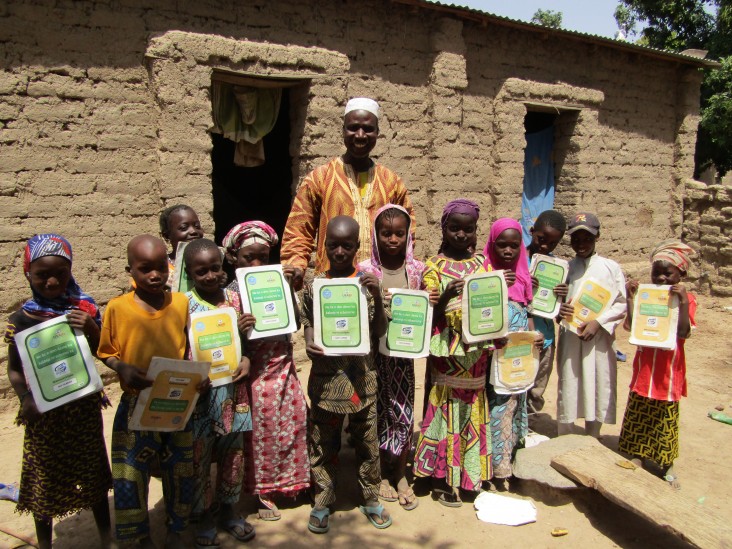Speeches Shim

After tending his fields, Moussa Konaré finds time to support children’s education in Mali, yielding bountiful results
At47 years old, Moussa Konaré loves working in his fields. Farming is his main source of income, and how he provides for his large family in Bourakébougou, Mali.
But Moussa has a new interest as well: promoting the education of his children and his community.
Two to three times a week, Moussa abandons his crops in order to walk his children to school. During the walk, he asks them about their classes and what they are learning. He also tells them about gifts that he can offer them if they do well throughout the school year. Once they arrive at school, Moussa talks with his children’s teacher about how he can support their learning at home.
But it’s at the end of the day that his work as a parent educator really picks up. When his children return from school, he reviews their work. Afterwards, Moussa hosts informal reading and writing sessions at his home for children in the village. More than a dozen learners usually attend. They sit on little stools in his courtyard, reading and writing.
“While before, I paid little attention to my children’s education, I realized that it is necessary to help children from an early age to get a taste for learning,” says Moussa. “Even if I have to go to the field, if I see that the children are not in the mood to go to school, I accompany them and I tell them funny stories along the way to destress and motivate them more.”
Moussa credits the USAID Selective Integrated Reading Activity for helping him build this awareness about the importance of early literacy and active parental involvement.
Launched in 2016, the USAID activity supports students in grades 1 and 2 to improve reading and writing in Bamanankan, the national language spoken by most people in Mali. Children in 3,682 public and community schools in the Koulikoro, Sikasso, Ségou regions and the district of Bamako participate. And, through its community participation component, the project aims to strengthen the involvement of parents, communities, and private sector partners.
Before the USAID Selective Integrated Reading Activity, Moussa says he did not think much about his children’s school life at all. He — like many other parents in Mali — believed that his children’s education happened entirely inside the school’s walls. But that attitude changed in 2018.
Bourakébougou Public School Teacher Dounou Konaré attests to the importance of what Moussa is doing with the children.
“He reviews what we have done in class and previews what we are going to do,” says Dounou. “It makes my job a lot easier because my students are able to follow, understand, and master my classes.”

Comment
Make a general inquiry or suggest an improvement.